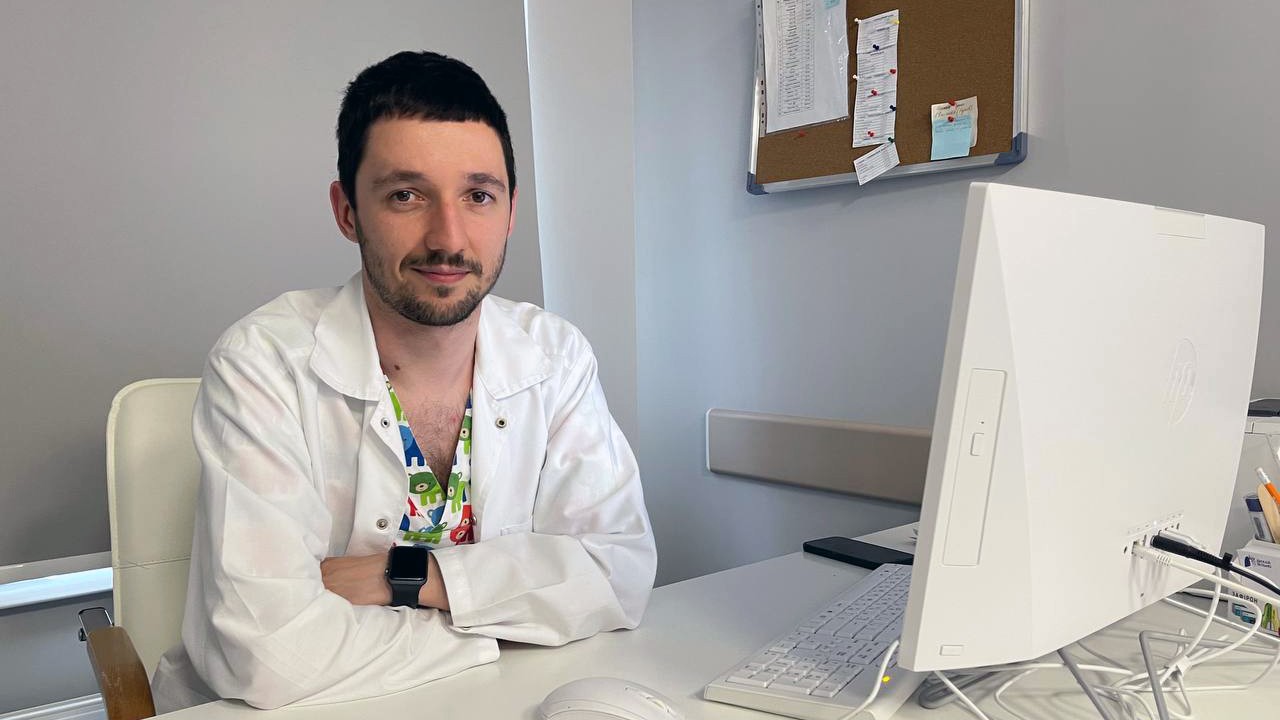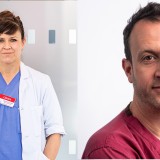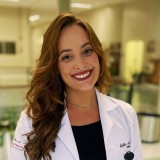
Artem Neverovskyi is a gastroenterologist andteaching assistant at the Department of Internal Medicine №1 of the Bogomolets National Medical University, Kyiv, Ukraine.
Could you tell us a bit about yourself, and why you chose gastroenterology as your clinical and research topic?
Hi, I am Artem Neverovskyi, a gastroenterologist from Kyiv, Ukraine. I am from the Odesa region — the beautiful southern part of my country, near the Black Sea (I highly recommend everyone to visit Odesa, you will enjoy it, I promise). My second lovely city is Kyiv, where I have lived for 17 years since the beginning of my medical studies. Since that time medicine has been one of the main parts of my life.
About all doctors have at least one time (probably many times) asked themselves the question about their choice of specialty. But for me, there is no single answer. Why did I choose gastroenterology? Primarily, because it is interesting. I always have been interested in the physiology of the GI tract, especially in our second brain — gut microbiota, and its influence on our brain. Secondly, in gastroenterology, we often see quite a quick result of our treatment and consequently happy eyes of our patients (unfortunately, not always). And it’s inspiring. And thirdly, it was partially a coincidence that I decided to be a GI specialist, but I am very happy that fate thus connected me with gastroenterology.
What does gastroenterology look like in Ukraine today and what perspectives do you see in the future?
Working in Ukraine as a gastroenterologist is sometimes challenging, mostly due to limited resources as well as limited access of Ukrainian physicians to high-quality medical literature. However, recently the situation has been changing in a better direction. We try to introduce European guidelines and clinical recommendations into our routine clinical practice, we continue studying and enhancing our skills, with each month we are getting closer to European standards (there is still quite a bit left).
Which area in gastroenterology do you admire the most?
І may answer – everything. But of course, each doctor has his/her professional preferences. I have two polar preferences – hepatology and disorders of gut-brain interaction. In hepatology I like to manage incomprehensible cases, especially making a diagnostic plan with the founding of specific etiology. In such situations, I feel like an actual investigator. Knowing the cause of liver disease is key to effective treatment that gives clinical results. My goal in the management of these patients is to prevent fibrosis progression and cirrhosis development. Another of my passions in gastroenterology is disorders of gut-brain interaction. I think most GI specialists may agree that the majority of our patients have these disorders. Fortunately, each year we are getting more information about the origin of these disorders and how to deal with them. I know that many gastroenterologists find these patients challenging. It is true, sometimes it is really hard to communicate with them. However, I like such complicated cases, especially the education part: explaining the mechanisms of the DGBI, and options for its management (lifestyle, gastroneuromodulators, etc). Thanks to the right diagnosis and a correct neuromodulation prescription, I subsequently see nice results.
What motivates you to develop further in the profession? What advice you may give to beginners?
Finally, some words about motivation. What motivates me? I am really in love with medicine. I sincerely want to understand my patient's fears, needs and help them. Like many doctors, sometimes I feel a slight burnout, and it's natural because physicians are humans and of course, they can be tired. Anyway, I try to never give up, because I can't live without medicine and gastroenterology. I know it may sound a little dramatic. My advice for medical beginners is simple: do what you like and like what you do. Getting satisfaction from your work is a clue to success, in medicine too.




Please log in with your myUEG account to post comments.